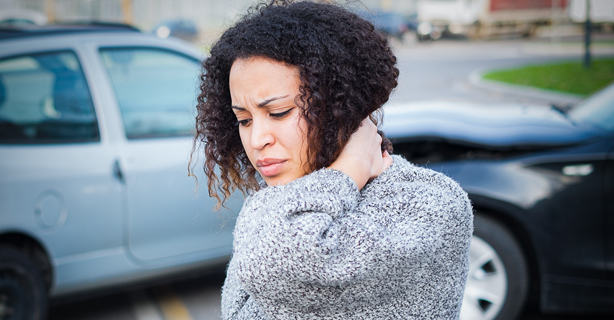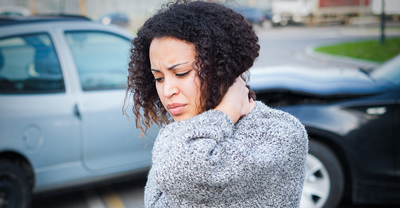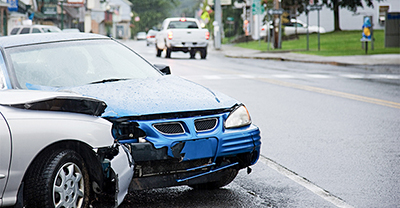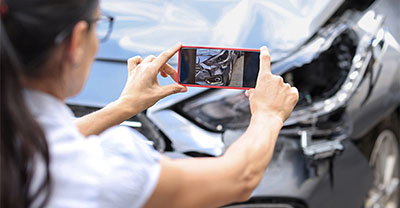Medical payments vs. personal injury protection (PIP) car insurance coverages


0 min. read
Medical payments coverage and personal injury protection (PIP) coverage are similar in several ways:
They’re both auto insurance coverages that can help pay for covered medical expenses resulting from an accident.
Neither coverage is fault-dependent, meaning you can be compensated regardless of who caused the accident.
However, these two similar-sounding car insurance coverages aren’t interchangeable. In this guide, we’ll go over the differences between medical payments and PIP coverage, as well as the reasons to consider carrying one or both, if available.
What’s the difference between medical payments coverage and personal injury protection (PIP) coverage?
The specifics of these coverages can vary between states, so review your policy for more details. But broadly speaking, medical payments coverage differs from PIP coverage in two major ways:
Scope of coverage
Medical payments can help pay for medical expenses resulting from an accident. PIP can help cover medical expenses resulting from an accident as well, but can also help pay for other costs associated with an injury caused by an accident—lost wages, replacement services, or even funeral services.
Coverage limits
Medical payments insurance generally has lower coverage limits compared to PIP coverage. Since PIP covers a larger scope of expenses, it tends to have higher coverage limits.

Get an auto insurance quote.
What is medical payments auto insurance coverage?
Sometimes called MedPay, medical payments coverage can help pay for medical expenses caused by an auto accident, regardless of who’s at fault.
Medical payments coverage may coordinate with your other policies—like health insurance. For example, medical payments coverage could help you pay for expenses that your health insurance doesn’t cover, like deductibles and co-pays.
However, medical payments coverage is not a substitute for health insurance—it only pays for medical expenses arising from a covered car accident.
Is medical payments coverage mandatory or optional?
While medical payments coverage is optional in most states, a few states—for example, Maine and New Hampshire—currently require drivers to carry it.
Auto insurance providers generally allow policyholders to purchase medical payments alongside other coverages—such as bodily injury liability and property damage liability—in an auto policy.
Is medical payments coverage available in my state?
Since medical payments coverage and PIP are so similar, many states mandate one over the other, but some states allow both to be offered.
Look up your state on our car insurance requirements by state page to learn whether medical payments coverage is available where you live.
What is personal injury protection (PIP) coverage?
Similar to medical payments coverage, PIP insurance can help pay for your medical expenses following a covered car accident. Unlike medical payments coverage, PIP can help protect you by covering a range of costs related to injuries resulting from auto accidents. This may include lost wages, replacement services, or funeral expenses.
Is personal injury protection (PIP) coverage available in my state?

In addition to the 13 states that require PIP, drivers can optionally carry a PIP policy in the following states (as of February 22, 2024):
Washington D.C.

Request a free car insurance quote.
Can I carry both medical payments and personal injury protection (PIP) coverage?
It depends on the state you live in. In states that offer both coverages, many don’t restrict drivers from carrying medical payments and PIP coverage at the same time. For example, New York requires drivers to carry PIP insurance, but it also allows drivers to supplement their PIP coverage with medical payment insurance.
When drivers have both, PIP generally pays out first, but not always. The order of payments can vary by state and auto insurance provider.
Which car insurance coverages pay for funeral expenses?
PIP insurance generally covers accident-related expenses such as lost wages, deductible payments, and even funeral expenses.
Medical payments coverage is generally more limited, but it can provide coverage for funeral expenses if the fatality is related to injuries from a covered accident. Talk to your agent and review your policy to be sure you understand exactly how your car insurance works.
Which car insurance coverages pay for lost wages?
PIP coverage exists to protect policyholders from covered costs associated with personal injury resulting from a car accident, which may include the financial injury of lost wages.
On the other hand, medical payments coverage generally doesn’t pay for lost wages, since lost wages are not a medical bill.
Are passengers covered under medical payments and PIP coverage?
Generally, yes—both medical payments and PIP coverages typically extend to the passengers of the insured driver. Regardless of who’s at fault in a covered accident, the driver’s medical payments or PIP coverage can help pay for medical expenses and related costs of anybody injured in the car accident while riding with them. This can vary by state, so be sure to review your policy to determine whether your coverage applies to specific passengers.
If passengers have their own medical payments coverage, they may be required to use their coverage first before using the driver’s coverage. Qualifying for coverage under multiple policies can increase the total amount of coverage available.
In at-fault states, passengers can also seek recoverable damages from the at-fault driver’s liability insurance policy.
The general information in this blog is for informational or entertainment purposes only. View our blog disclaimer.
*Data accuracy is subject to this article's publication date.











